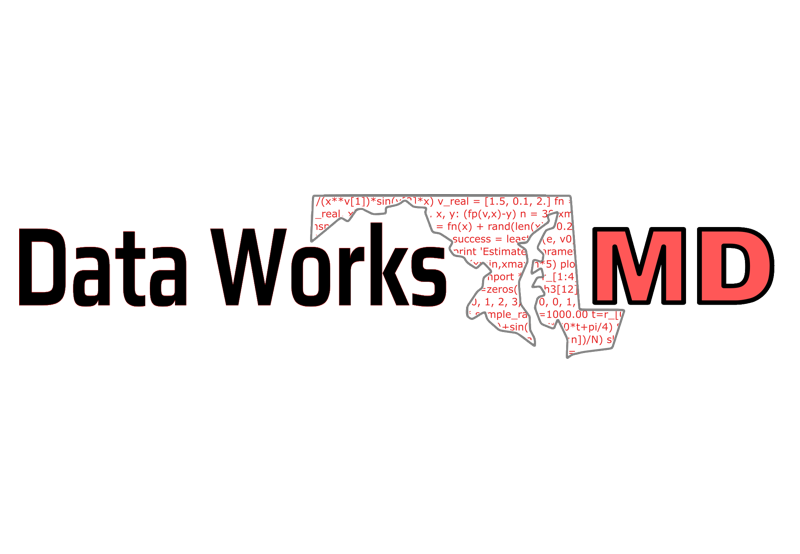About DAX
The 2nd annual DAX 2022 Conference was held at UMBC on June 10th and focused on data science, analytics, and general data exploration. Engineers, data scientists, analytic developers, system architects, and business leaders shared their experiences and presented topics of interest to the local data community. Attendees included engineers, thought leaders, business leaders, and professionals from local government, government defense and intelligence agencies, start-up companies, large data analytic and data science companies, and local universities.
Schedule
Check-in, Breakfast, and Networking
Opening Remarks
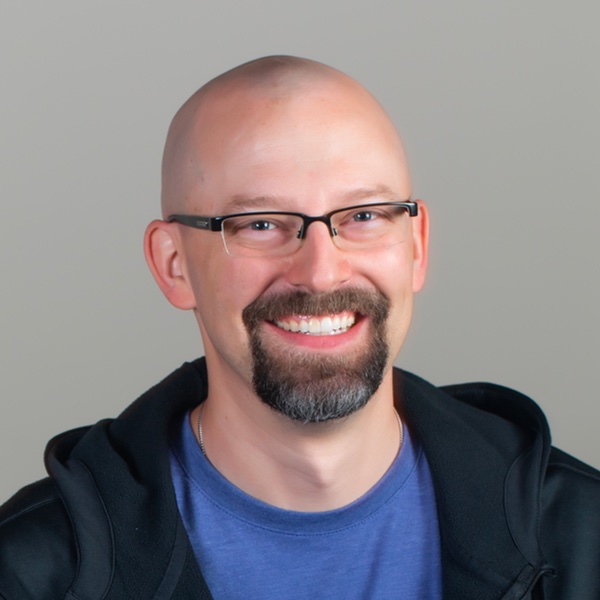
President and Founder | Erias Ventures
Jason Barbour is the President and Founder of Erias Ventures, a government contractor focused on data science, software engineering, and system engineering, the Founder of Data Works MD, an organization focused on data science education and learning, and one of the founders of the DAX data conference. With a drive for success and a passion for technology, he has developed big-data analytics, enterprise automation products, and operational cyber tools for a number of customers and organizations. In his work with Data Works MD and DAX, he has built a community of enthusiasts working together to share and learn about the wonders and science of working with data. With Erias, he is building a team of high-caliber engineers that are bringing innovative ideas to the government.
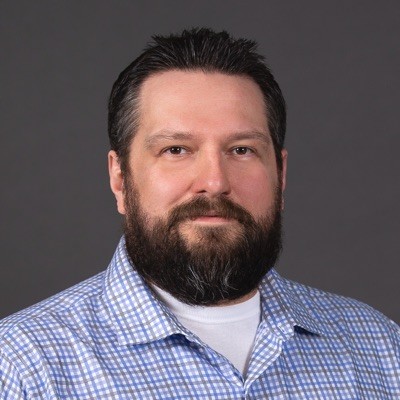
Chief Technology Officer | ClearEdge
Dan Hood is the Chief Technology Officer at ClearEdge, where he specializes in large-scale compute problems and enterprise software architecture. Dan has a B.S. & M.S. in Computer Science from UMBC where he subsequently taught a wide range of courses as an adjunct faculty member for over a decade. When he's not helping solve challenging customer problems, he enjoys collecting, tinkering with, and occasionally even playing with retro game systems and computers.
Keynote: Top 3 Things I've Learned
analytics data science machine learningThe three most important analytic innovations I’ve seen in three decades of extracting useful information from data have to do with: Ensemble models, Target Shuffling, and Cognitive Biases. Ensembles are sets of competing models that often combine to be more accurate than the best of their components. Target Shuffling is a resampling method that corrects for “p-hacking” or the “vast search effect” where spurious correlations are frequently seized upon by modern methods’ ability to try millions of hypotheses. And the third, Cognitive Biases, is the dawning understanding of how deeply flawed our own reasoning naturally is. This especially reveals how doomed our projects will be unless we seek out – and attend to – external critique.
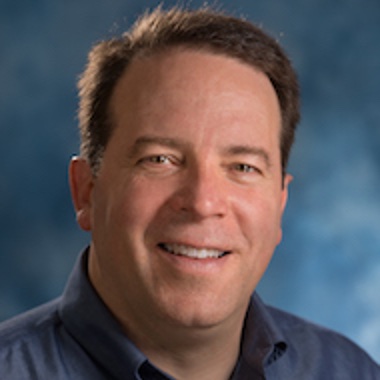
Founder & Chair | Elder Research
John Elder founded the world’s most experienced data science company, Elder Research, 27 years ago. He has led teams to solve tough challenges to, for example: detect fraud, find insider threats, discover a drug, time markets, predict needed maintenance, and analyze vast networks. John has co-authored three books – on data mining, text mining, and ensembles – two of which won “book of the year” in Mathematics or Computer Science. He has invented analytic breakthroughs, chairs international conferences, and is a popular keynote speaker, illuminating complex topics with clarity and humor. Dr. Elder is an (occasional) Adjunct Professor at UVA and was named by President Bush to serve five years on a panel to guide technology for national security.
A Space Race to Cybersecurity
artificial intelligence cybersecurity spaceIt has been over half a century since man first walked on the moon. In that time, space has become even more important to modern life. All of the 16 critical infrastructure sectors that we consider vital to the economic and public safety of the United States rely in one way or another on space. Hackers and adversarial nations know this and have been ramping up their attacks.
To combat threats against space-based resources, BigBear.ai partnered with Redwire to create a digital twin engine called SpaceCREST, Space Cyber Resiliency, through Evaluation and Security Testing.
What is a digital twin? Let’s ask ChatGPT. A digital twin is a virtual representation of a physical object or system used for modeling, simulation, and analysis. Digital twins are used to track and predict the performance and behavior of the corresponding real-world entities. Digital twins can also be applied to various applications, such as manufacturing, healthcare, transportation, and cyber security. Digital twins contain data from sensors and other sources to provide an accurate, real-time representation of the physical object, enabling organizations to make informed decisions and optimize operations.
At the heart of SpaceCREST is a digital twin that models and simulates complex space-based assets that provide the ability to quickly detect anomalous behavior. We use it as part of the National Security effort to understand, manage, and reduce risk to our cyber and physical infrastructure. We leverage the power of digital twins with artificial intelligence to fight hackers… in space.
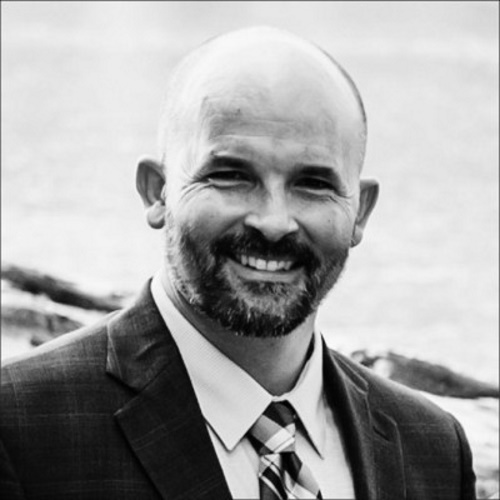
VP of Engineering, Federal | Bigbear.ai
Mr. Casper is a Vice President of Engineering within Bigbear.ai Federal. As a seasoned computer engineer, Mr. Casper has proven his expertise in software and hardware design, reverse engineering, and cybersecurity, as well as bringing over 22 years of experience in supporting US Intelligence missions. Mr. Casper is a multi-disciplined engineer with the ability to seamlessly bond together multiple technologies, providing functional and desirable end-user products, to satisfy challenging and varying requirements.
Mr. Casper graduated from the University of Akron in 2003, with a B.S. in Computer Engineering. He joined the DoD civilian workforce full-time in 2003 as a Microelectronics Design Engineer. While working, Mr. Casper continued his education at The Johns Hopkins University, graduating with an M.S. in Computer Science in 2008.
BCSTAT - Data Driven Baltimore County
dashboards government data sharingThis talk covers the creation of the BCSTAT program, which was conceived in order to foster a more data driven Baltimore County. This talk highlights all of the great work being done to identify need and provide the appropriate resources. There is a component of open data and public facing dashboards along with the struggle with data sharing at the local level. It concludes with the American Rescue Plan work and how Baltimore County is one of the few jurisdictions to actually create their own methodology for the underserved.
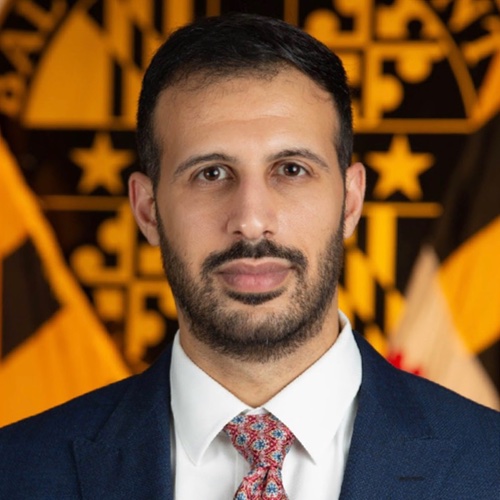
Chief Data and Performance Officer | Baltimore County
Momen Abukhdeir is the first-ever chief data and performance officer for Baltimore County, a position created to help the county leverage more data in its decision-making and governmental action. Prior to his current role, Momen served in the Baltimore County Department of Public Works and as the Deputy Director for the Baltimore City Environmental Control Board. Previously, he served as the Deputy Director of the Mayor's Office of CitiStat, the internationally recognized data and accountability office of Baltimore City. Momen earned a Bachelor's degree in Political Science from the University of Maryland Baltimore County (UMBC) and a Juris Doctor (JD) degree from the University of Baltimore School of Law.
Lunch and Birds of a Feather
Birds of a Feather tables will be setup to bring together members for an informal discussion on certain topics led by a community thought leader in the field. This year we are pleased to have the following Birds of a Feather hosts:
- Data Driven Baltimore County - Momen Abukhdeir
- Data Quality Monitoring - Gregory Johnson
- Data Science in Higher Education - Dr. Alexei Kolesnikov
- Interactive HPC: Impacts for Data Science and EDA - Ethan DeBandi
- Artificial General Intelligence - How Much Closer Are We Today - Aaron Cordova

Chief Data and Performance Officer | Baltimore County
Momen Abukhdeir is the first-ever chief data and performance officer for Baltimore County, a position created to help the county leverage more data in its decision-making and governmental action. Prior to his current role, Momen served in the Baltimore County Department of Public Works and as the Deputy Director for the Baltimore City Environmental Control Board. Previously, he served as the Deputy Director of the Mayor's Office of CitiStat, the internationally recognized data and accountability office of Baltimore City. Momen earned a Bachelor's degree in Political Science from the University of Maryland Baltimore County (UMBC) and a Juris Doctor (JD) degree from the University of Baltimore School of Law.

Founder | DataGovs
Gregory is a Data Practioner with 10+ years of experience in Enterprise Software for regulated industries. Before DataGovs, he built data systems for insurers, third-party administrators, and regulatory agencies. Gregory distributed software at Tesser Health and PxSource until the businesses were sold. During the acquisition, Gregory supported data migration on the cloud and was later recruited by Microsoft Director in South Florida to lead digital transformation and AI for Good. Gregory co-started and built the 4th largest US partnership between Code for America in the state of Florida for Open Data and Open Source Code called Code for South Florida. Gregory holds a bachelor’s degree from Florida International University and is a JSK Stanford University alumni. Greg’s work has been recognized by Miami-Dade College, New Profit, and New America for his leadership in Public Interest Technology. Over his career, his specialty has been data, analytics, and AI for regulated industries: Local Government, Finance, Healthcare, and NGOs.
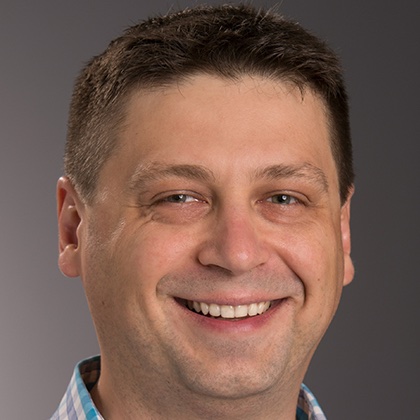
Professor of Mathematics | Towson University
Dr. Alexei Kolesnikov is a Professor of Mathematics at Towson University, where he also serves as the Director of Undergraduate Research in the Office of the Provost. He has received a PhD in Mathematics at Carnegie Mellon University; his main research focus is model theory, a field of study in mathematical logic. In addition to research, he is interested in helping all students engage in mathematical professions. He has directed a large number of undergraduate research projects in fundamental and applied mathematics.
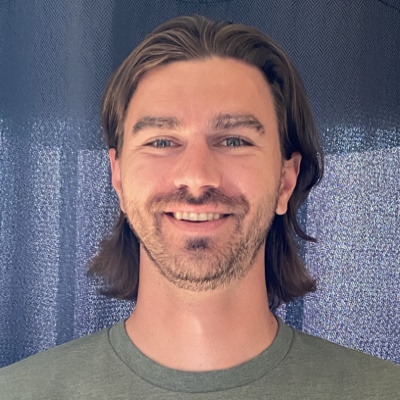
Senior Software Engineer | Erias Ventures
Ethan is a software engineer with 8 years of experience spanning web, analytic, and now HPC development. He is the technical lead of Arkouda, which develops NumPy/Pandas like functionality to run at HPC scale while remaining interactive. Ethan recently founded Dynamic Computing Solutions, a software compare aimed at bringing bespoke analytic tools to the consumer market.
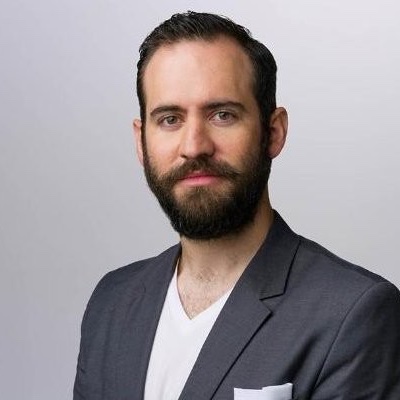
Cofounder and CTO | Koverse, An SAIC Company
Aaron has built multiple, large-scale, big data systems that are used by the intelligence, defense, finance and healthcare industries. He has a passion for delivering products that are transformative, through close customer collaboration and iterative development. As the Koverse CTO and Founder, Aaron is responsible for building the only intelligent solutions platform that addresses need-to-know now situations that businesses face. Aaron is also the founder of Apache Accumulo, a scalable and secure data store and the author of the O’Reilly book, Accumulo: Application Development, Table Design, and Best Practices.
Tackling the Challenges of Combining Disparate Data Sources in a Traditional Data Science Workflow using Modular Flow-Based Programming
data aggregation data science flow basedSalynt co-founders will focus on the challenges of combining disparate data from multiple sources using the R programming language, and how they solved this problem using modular flow-based programming. Our Chief Data Scientist will explain the data science workflow, challenges, and various approaches used to show relationships and anomalies within the data, while our CTO will discuss the technical details of our solution.

Chief Data Scientist | Salynt.io
Ruthe is a Co-Founder at Salynt. Ruthe's expertise as a Data Scientist is formidable, providing the perfect strategic advantage in the field of AI/machine learning. In addition, her passion is to provide solutions to other data scientists' pain points within the discipline.
Ruthe's background as a data scientist began in the public sector, where she focused on biostatistics and public health. Since then, she's worked at Booz Allen Hamilton and Practical Intelligence as a Senior Data Scientist. Furthermore, Ruthe teaches mathematics and statistics in her free time, mentors criminal justice-involved scholars, and enjoys hiking, water sports, and the symphony.
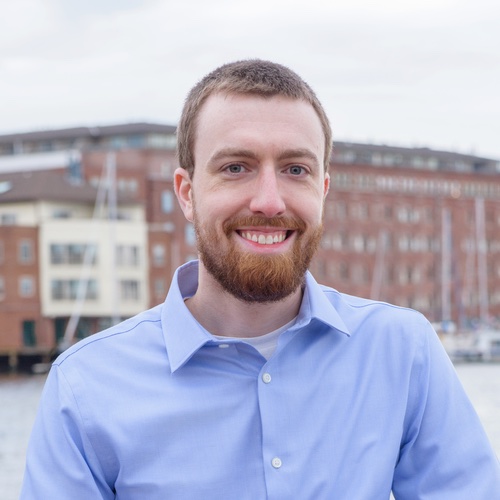
Chief Technology Officer | Salynt.io
James is a spirited software engineer and the Co-Founder at Salynt. He oversees the design and development of Salynt, software that's providing an advantage to tech and business leaders everywhere.
Recently, James received a patent for creating a modular analytic development framework, which could rapidly construct cyber analytics. Previously, he was lead software engineer on the Real-Time Processing (RTP) team at Xandr, working on bid and impression process optimization in real-time and curated-deal advertising auctions.
Is a Data Science team needed?
data science data practiceHaving executed multiple Machine Learning/AI type projects across various different business domains a common problem that I have run into is having business stakeholders question if my teams work is needed or wanted to opt for a third party tool/vendor that did machine learning/ai as part of the package. In this presentation I want walk through how I have had success overcoming the perceptions of data science team/projects and executing a high preforming data science team. The talk will dive into the three pillars needed for a high functioning team(people, technology, and process) and provide examples of challenges and best ways I have had success to overcome those challenges.
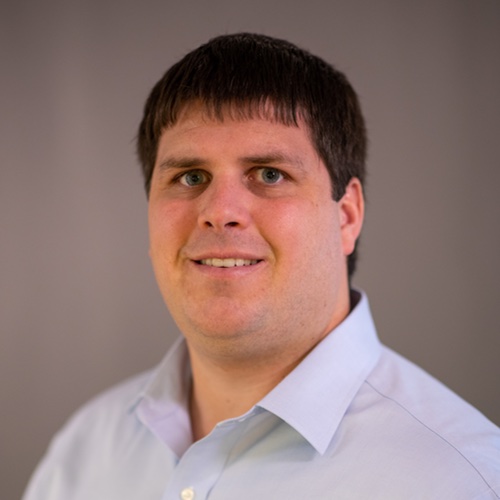
Director of Data Science | Total Wine & More
Matt Eckert is currently the Director of Data Science and Analytics at Total Wine & More applying Machine Learning to various domains such as marketing, product recommendation, and supply chain. Prior to Total Wine & More he ran multiple data science projects at Marriott International and worked at the National Security Agency. He holds a B.S. in Computer Science from University of Maryland College Park and M.S. in Computer Science from University of Maryland Baltimore County.
Afternoon Break and Snacks
Lightning Round: Top Machine Learning Tips and Tricks!
machine learning tips and tricksThis will cover some of the best Tips and Tricks I've encountered over the past 38 years in advanced analytics, including some Best Practices in the following areas: Feature Engineering; Model Implementation when you don't have an MLOps infrastructure; Multiplying team effectiveness; Five silliest things I've seen data scientists do; Effective model communications with internal and external stakeholders.
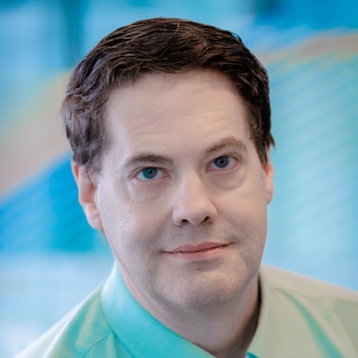
Chief AI Learning Officer | Analytics-Edge
T. Scott Clendaniel is secretly "older than dirt," having started in advanced analytics almost four decades ago. Previous assignments have included high profile clients like Bristol-Myers Squibb, Mercedes, and the Los Angles Times. A fearless advocate for democratizing machine learning, he tirelessly promotes education and inclusiveness.
Beat The Streak! with Machine Learning, Python and Baseball Data
machine learning major league baseballCan you beat Joe Dimaggio’s 56 consecutive game hit streak? The short answer is no, you cannot. But, can you play Bet MGM’s “Beat The Streak” and win $5.6 million? Yes, you can! In this presentation FanGraphs writer and Data Scientist Lucas Kelly will present how he used machine learning in an attempt to predict the major league baseball hitter most likely to get a hit in a major league baseball game each day. Lucas will dive into the features that a supervised machine learning model is trained on, the sources of training, testing and deployment datasets and will analyze his progress on the current MLB season. You will see how machine learning pipelines, API calls, and out-of-box thinking come together to make daily predictions and how this system can be scaled to share with other players. Come and see how machine learning and python may just be able to help Beat The Streak players gain an edge.
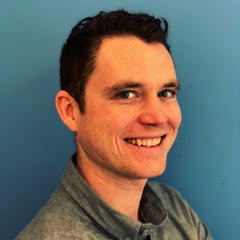
Data Scientist | FanGraphs
Lucas is committed to uncovering, analyzing, and telling the story of data. Always learning, growing, and developing, Lucas began writing about his baseball analytics for FanGraphs in 2021. He is a Data Scientist for the World Wildlife Fund (WWF), where he works in fundraising and marketing to help WWF fund conservation efforts around the world.
Closing Remarks
Jason BarbourCocktails and Networking

Data Engineer | Fearless
Nick Saccente has worked as a machine learning engineer, a solutions architect, and a big data engineer for both the Department of Defense, and the Centers for Medicare and Medicaid Services. When Nick isn't building data driven systems (or breaking them), he's writing in Golang, tending to his home automation server, or woodworking.
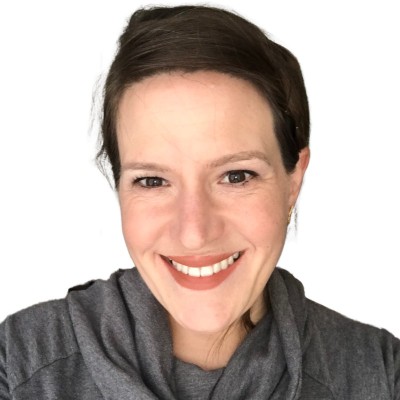
Organizing Board Member | DAX
I like to be an agent of change; the force that moves a seemingly immovable object into a more positive direction, or sometimes just dragging it along with me. My career has taken me through many different offices and contracts as I went from linguist, to analyst, to program manager. Now I’m thrilled to lend my efforts to Data Works MD and DAX and help bring together data enthusiasts from Maryland.


